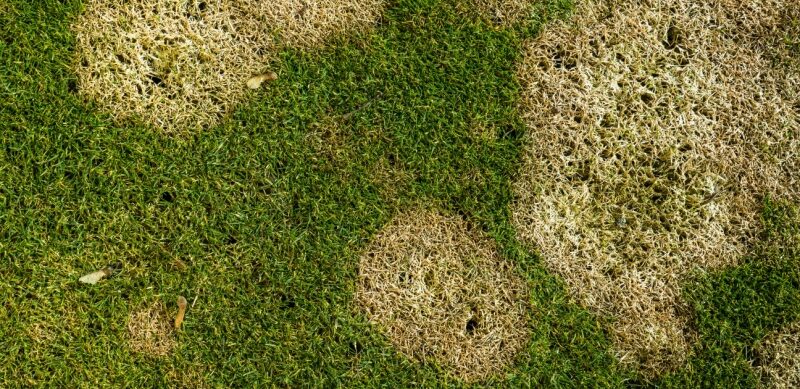Why Does My Turf Have Tons of Brown Spots?

Seeing brown spots on your lush green lawn can be both frustrating and worrisome. Brown spots can be caused by a variety of factors, each requiring a different approach to address. In this blog, we'll explore some of the most common reasons why your turf might be developing brown spots and provide tips on how to restore your lawn to its former glory.
Watering Issues
One of the primary causes of brown spots in your turf is improper watering. Both overwatering and underwatering can lead to brown patches. Overwatering can create a waterlogged environment, promoting fungal diseases and root rot. On the other hand, underwatering can cause drought stress, where the grass turns brown due to lack of moisture.
To maintain a healthy lawn, water deeply but infrequently, aiming for about 1 to 1.5 inches of water per week. Water early in the morning to allow the grass to dry out during the day, which helps prevent fungal diseases.
Soil Compaction
Compacted soil restricts the movement of air, water, and nutrients to the grass roots, causing the grass to weaken and turn brown. High-traffic areas are particularly prone to soil compaction. To alleviate this issue, aerate your lawn at least once a year, preferably in the spring or fall. Aeration involves removing small plugs of soil to allow better penetration of air, water, and nutrients, promoting healthier grass growth.
Thatch Buildup
Thatch is a layer of dead grass and organic matter that accumulates between the soil and the grass blades. While a small amount of thatch can be beneficial, excessive thatch can create a barrier that prevents water, air, and nutrients from reaching the soil. It can also harbor pests and diseases. Dethatch your lawn if the thatch layer exceeds half an inch. This can be done using a dethatching rake or a power dethatcher.
Fungal Diseases
Fungal diseases are a common cause of brown spots in turf. Diseases such as brown patch, dollar spot, and rust can cause significant damage to your lawn. These diseases thrive in warm, humid conditions and can be exacerbated by overwatering, poor drainage, and excessive thatch. To prevent fungal diseases, follow proper watering practices, improve air circulation by trimming overhanging branches, and apply a fungicide if necessary.
Pest Infestations
Pests such as grubs, chinch bugs, and sod webworms can cause brown spots by feeding on the grass roots and blades. If you suspect a pest infestation, inspect the affected areas for signs of insect activity. Grubs, for example, can be found by peeling back a section of the turf. If you find more than five grubs per square foot, it's time to treat your lawn with an appropriate insecticide.
Dog Urine
Dog urine can cause brown spots due to the high concentration of nitrogen, which burns the grass. To prevent this, train your dog to use a designated area of the yard or water the affected areas immediately after your dog urinates to dilute the nitrogen. You can also create a designated potty area with mulch or gravel to protect the rest of your lawn.
Improper Mowing
Mowing your lawn too short or with dull blades can stress the grass and cause brown spots. Follow the recommended mowing height for your grass type, and keep your mower blades sharp to ensure clean cuts. Avoid cutting more than one-third of the grass height at a time, as this can weaken the grass and make it more susceptible to disease and drought.
Nutrient Deficiency
A lack of essential nutrients, particularly nitrogen, can cause the grass to turn brown and thin out. Conduct a soil test to determine the nutrient levels in your lawn and apply a balanced fertilizer to address any deficiencies. Fertilize during the growing season and follow the recommended application rates to avoid over-fertilization.
Brown spots on your turf can be caused by a variety of factors, from watering issues and soil compaction to fungal diseases and pest infestations. By identifying the underlying cause and taking appropriate action, you can restore your lawn to its healthy, green state. At The Experienced Gardener, we are dedicated to helping you maintain a beautiful, disease-free lawn. Contact us today for expert lawn care services and advice tailored to your needs.


